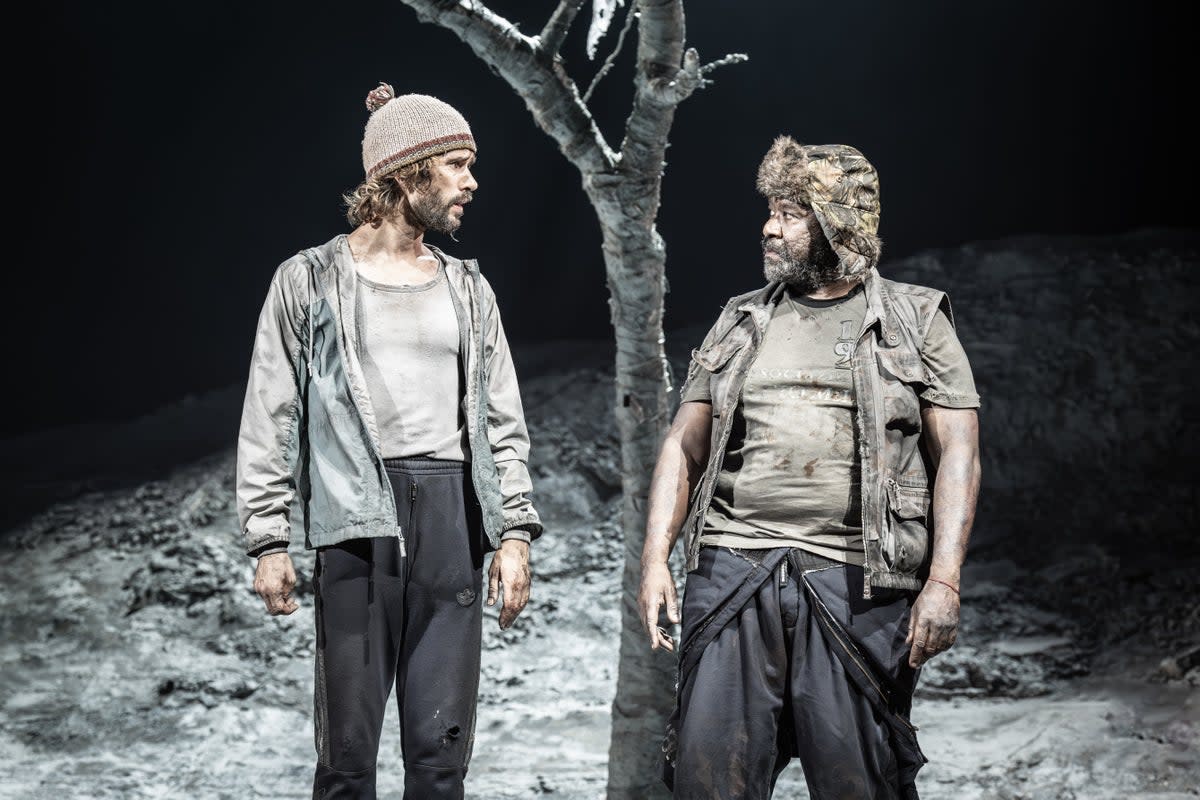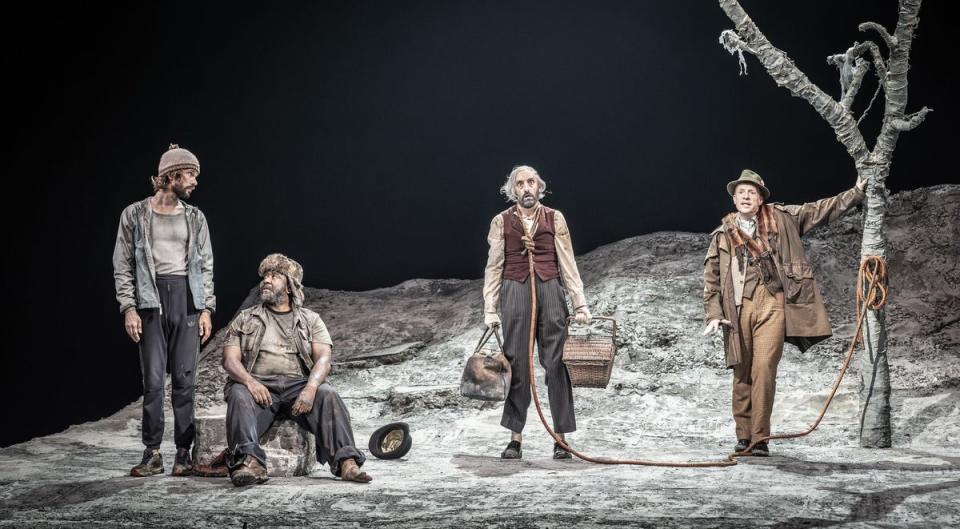Waiting for Godot at Theatre Royal Haymarket review: the best staging of this challenging classic I’ve ever seen

Ben Whishaw and Lucian Msamati bring a potent, tragicomic chemistry to James Macdonald’s rich revival of Samuel Beckett’s challenging play.
In this keystone of modern drama, derelicts Vladimir and Estragon – described by Beckett as “clowns” – battle against the meaningless of life, waiting in a blasted landscape for a man they don’t know, who never comes.
The bleak wit and the absurdity sit well with our frightening but also ridiculous times, as does the plaster artificiality of Rae Smith’s set and the occasional breaking of the fourth wall.
I’ve seen many fine duos play the leads but this time I enjoyed and understood the play on a whole new level. Macdonald also draws superb performances from Jonathan Slinger and Tom Edden as Pozzo and Lucky, the rich man and his slave who distract and disturb the bickering vagrants.
Written in the late Forties, premiered in Paris in 1953 and London in 1955 (where it won Most Controversial Play at the first ever Evening Standard Theatre Awards), Godot established Beckett as a major writer and a stickler for the sanctity of his text and stage directions.
Here the look, if not the words, are updated. Vladimir (Whishaw) and Estragon (Msamati) are not picturesque stage tramps but recognisably homeless men in shabby anorak and overalls, suffering the privations and ailments that rough sleeping leads to.
Whishaw’s ‘Didi’ is the perkier of the two, coming up with games and diversions to while away the time while Msamati’s ‘Gogo’ glumly suggests separation or suicide.

Serious actors with innately funny bones, they riff of each other’s mood changes beautifully. The characters’ interplay harks back to music hall, particularly in the second half with its hat-swapping routine and slapstick gags. But Beckett’s vision was also clearly shaped by the repercussions of the Second World War: the lasting human damage and social upheaval.
Slinger’s grandstanding but insecure Pozzo displays a mishmash of upper-class signifiers – tweed, dress shoes, mink stole, driving whip – while Edden’s drooling, staring Lucky seems shell-shocked (his commitment to the role is total: in the scene where Lucky is collapsed and the focus is elsewhere, he still barely blinks).
But Pozzo senses his authority is precarious: suddenly rendered blind, he becomes even more dependent on Lucky, who has become dumb. Life is random and cruel, even to the rich – but mostly to the poor.
“They give birth astride of a grave,” is one of the play’s most famous lines, and it’s easy to apply the image to countless situations around the world today.
“Nothing happens, twice,” was the infamous verdict of Irish critic Vivian Mercier on Godot in 1956. But in Macdonald’s production it feels like human existence is distilled, albeit from the exclusively male perspective of the Forties and Fifties. Still difficult, still challenging, Godot isn’t for everyone. But this is the best production I’ve ever seen.
Theatre Royal Haymarket, booking to December 14, trh.co.uk

 Yahoo Lifestyle
Yahoo Lifestyle 
